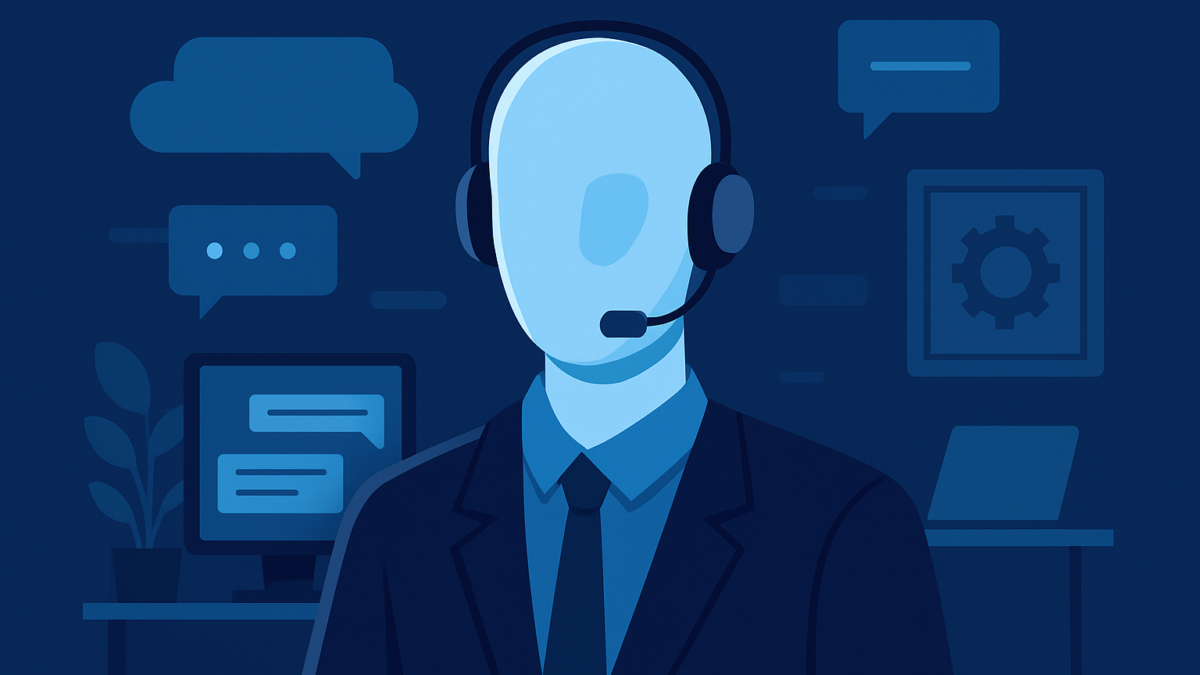The Rise of AI Agents: Are Virtual Employees the Future of Work?
Table of Contents
Introduction
Artificial intelligence (AI) is evolving at a remarkable pace. Beyond automation and predictive analytics, a powerful new concept is gaining ground: AI agents, also known as virtual employees. These AI-driven digital workers are capable of handling tasks, making decisions, and even collaborating across departments.
But the question remains — are virtual employees the future of work?
Let’s dive into how AI agents are shaping industries and what it means for businesses and employees alike.
What Are AI Agents (Virtual Employees)?
AI agents are not just basic chatbots or rule-based automation tools. They are intelligent software programs that combine machine learning, natural language processing (NLP), and advanced decision-making abilities.
Unlike traditional bots, AI agents can:
- Understand context
- Perform complex, multi-step processes
- Make independent decisions
- Continuously learn and improve over time
For instance, Devin, the world’s first AI software engineer developed by Cognition Labs, can autonomously write, debug, and deploy code. Meanwhile, AI-powered platforms like Ada are transforming customer support with human-like responsiveness.
Why Are AI Agents Gaining Momentum?
There are several key drivers behind the rapid rise of AI agents:
- Productivity Gains: Virtual employees work 24/7 without breaks, fatigue, or errors, increasing overall output.
- Cost Efficiency: Companies can dramatically reduce costs related to hiring, training, and infrastructure.
- Scalability: AI agents can handle a surge in workload instantly without requiring additional resources.
- Enhanced Accuracy: AI reduces human error, especially in data-intensive tasks, ensuring consistent performance.
According to a Gartner report, by 2027, 25% of digital work will be handled by AI agents, making them an inevitable part of organizational growth.
Industries Being Revolutionized by Virtual Employees
AI agents are not confined to a single sector. They’re already redefining how industries operate:
- Customer Service: Virtual agents handle queries, complaints, and support tickets without human intervention, offering immediate responses and better customer satisfaction.
- Finance and Banking: From fraud detection to risk analysis and personalized investment advice, AI agents are speeding up complex processes and reducing operational risks.
- Healthcare: AI-driven diagnostics, patient scheduling, and virtual nursing assistants are making healthcare more accessible and efficient.
- Software Development: Tools like Devin demonstrate how AI can autonomously develop software solutions, debug code, and even contribute to larger development projects.
The potential use cases are growing every day, hinting at a future where AI agents are integral to core business functions.
Will Virtual Employees Replace Human Jobs?
This question sparks frequent debates.
While AI agents will automate repetitive and operational tasks, they are unlikely to replace creative, strategic, and leadership roles anytime soon.
The future will likely involve collaboration between humans and AI, where:
- Humans focus on creativity, innovation, and emotional intelligence
- AI agents manage execution, analytics, and repetitive processes
Companies that understand this synergy will be able to unlock new levels of productivity and innovation.
Challenges and Ethical Considerations
Despite the many benefits, there are critical challenges to address:
- Job Displacement Anxiety: Certain roles may become obsolete, demanding upskilling and reskilling initiatives.
- Bias in Decision-Making: AI models must be carefully trained to avoid replicating human biases.
- Data Privacy and Security: Organizations must safeguard sensitive information managed by AI agents.
Regulatory frameworks and ethical AI guidelines will be crucial to ensuring that virtual employees serve humanity positively.
Conclusion
The rise of agents signals a shift toward a more automated, intelligent, and efficient workforce.
Virtual employees are already proving their value across industries, and their capabilities will only grow stronger with advances in AI technologies.
Rather than fearing this change, businesses and individuals must focus on adapting, reskilling, and leveraging human-AI collaboration for a brighter, smarter future.
At iTMunch, we believe the fusion of technology and human ingenuity will shape the workplaces of tomorrow.
Stay tuned with us as we continue to explore how AI is transforming the world of work!
You May Also Like: The Evolution of Ghibli-Style Art with AI: How GPT and Grok AI Are Transforming Animation





